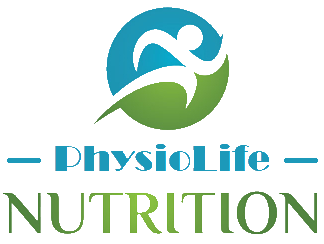We get a lot of questions about probiotics. What are they? Can I just eat yogurt? How do I use them? What should I look for? Should I be giving them to my kids? Here are the answers to these common questions.
What are they?
Probiotics are the good bacteria that colonize your intestines, both large and small. Unfortunately because of the way people eat and live these days, namely by consuming sugar, alcohol, and caffeine, as well as overusing antibiotics, we don’t have as much as we should. Thus, supplementation of probiotics has become an important part of the diet. There are several different species that are included under the name of probiotics but two of the more commonly known ones are Bifidobacterium bifidum and Lactobacillus acidophilus. Having adequate amounts of beneficial belly bacteria is good for just about every system of your body, but especially your immune system. It can help your cholesterol, reduce your chance for peptic ulcers, help control inflammation, get rid of eczema, improve bad breath, reduce the duration of a cold, aid in protecting against carcinogens and yeast infections, improve digestion and absorption of vitamins and minerals, and so much more.
What are prebiotics?
Prebiotics are food for the good bacteria. Taking these along with the probiotics supports the growth of the bacteria leading to better colonization of your gut and thus making the probiotics more affective. These can be found naturally in high fiber foods like artichokes, berries, bananas, flax, green leafy vegetables, and more. Or, you can purchase them in supplement form. Some examples are Prebiotin and FiberChoice Prebiotics. You can find these at health food stores, just about anywhere you can find vitamins, as well as here at PhysioLife Studios.

Can I just eat yogurt?
While yogurt does have probiotics in them, most of them no longer contain live cultures, do not contain enough cultures to make it worthwhile, or have too much sugar, preservatives, and other additives that make it rather unhealthy to consume. Also, while the fat in the dairy is helpful for protecting the probiotics from stomach acid in order to reach your intestines alive, there needs to be more research on how well probiotics delivered in this for actually colonize in the gut. Yogurt, when bought in the purest form and with live active cultures, only contains bacteria in the millions. The probiotic supplements that are on the market, however, contain bacteria in the billions and it is recommended to take doses of 10 to 30 billion. While adding a high quality, unsweetened, plain yogurt to your diet can be beneficial to your gut, it is preferable to take a probiotic supplement as well for best results.
How do I use them?
Probiotics are very easy to take. They come both in pill or powder forms so you can choose which mode of ingestion you prefer. They are very beneficial to use during and after antibiotic use. They will help to lessen the amount of good bacteria that is killed in your gut allowing digestion to remain normalized as well as get you back to being healthy faster than you would without them. Also, taking probiotics just before, during and just after travelling can lessen your chance of getting sick from the food or water that you may consume while abroad.
What should I look for?
If you choose to go the yogurt pathway, make sure you are buying a product that says it contains active cultures not just that it is made from them. The processing of yogurt can destroy any good bacteria that may have been in the yogurt so it actually does nothing for your body in the sense of probiotics. You will want to look for the LAC (live and active cultures) seal put out by the National Yogurt Association. That’s how you know you are buying the real deal. This stamp of approval means that there are a minimum of 100 million live cultures per gram of yogurt left after pasteurization. Stonybrook Farms and Organic Valley are both good companies to look for.

However, if you choose to go the route of supplementation, there are specific things that you should look for. First of all you need to check the dosage. Getting a supplement with 10 billion cultures per capsule is optimal. Second, you want to look at the particular strains that are in the capsules. The more strains the wider variety of symptoms that will be helped. However, if you have a very specific metabolic problem, you may want more of one strain than another. And most importantly, you want to make sure you are finding live active cultures. One way to test this is to break a few capsules into a glass of milk and leave it out for 24 hours. If it makes yogurt, you have the real stuff.
Should I be giving them to my kids?
Kids can absolutely take probiotics. In fact it is a great idea for them because it will ensure that their digestive systems are working to the best of their ability while your child is growing. This means they will be properly absorbing the nutrients they need and their immune systems will be getting that extra umph that will keep them happy, healthy, and active. You can also pass these benefits onto your infant if you are breastfeeding. Breast milk is a great source of probiotics for infants if you are taking in enough. This will ease digestion in the infant and keep them not only happier, but better nourished, which is incredibly necessary for a healthy baby.
